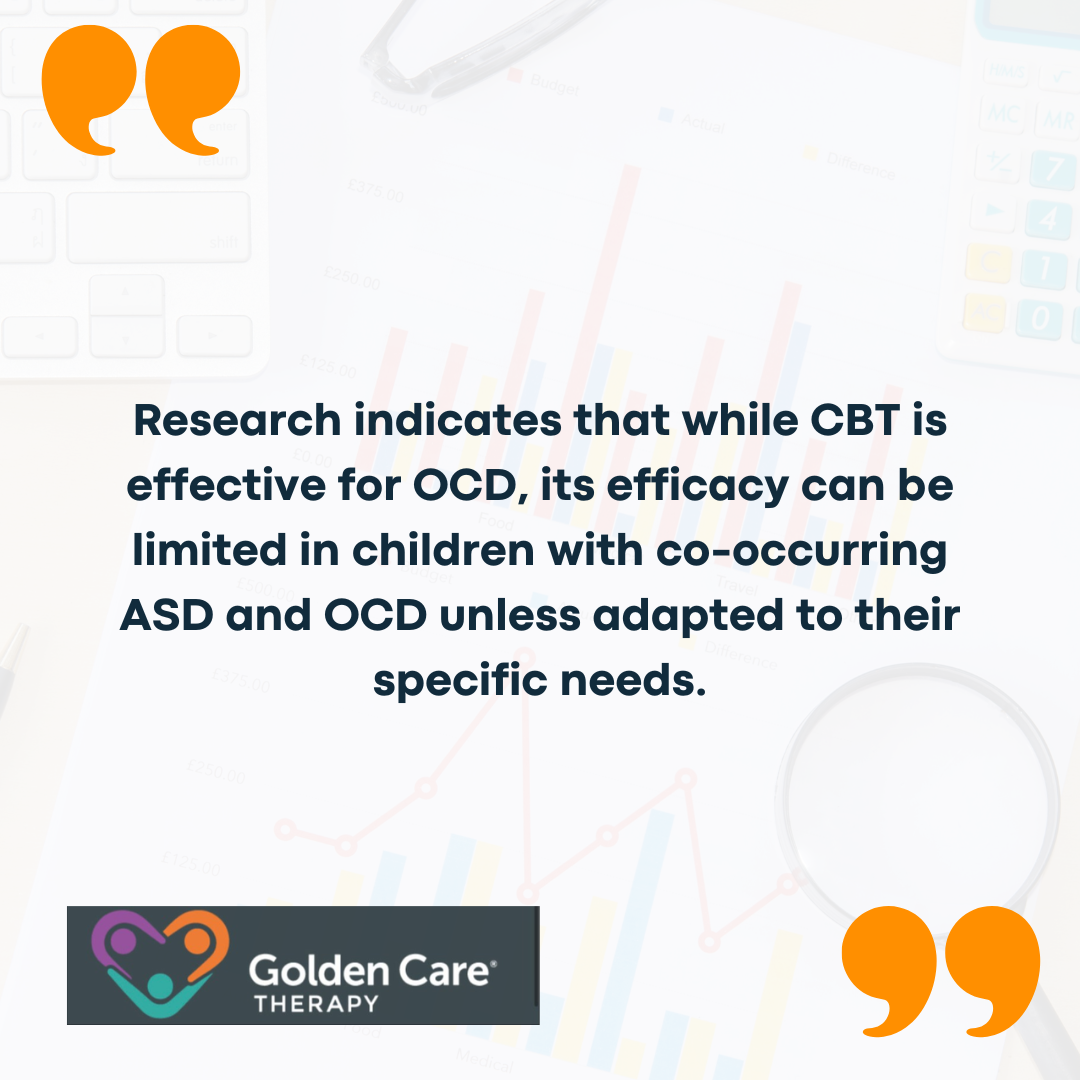As a parent or caregiver of a child with autism spectrum disorder (ASD) and obsessive-compulsive disorder (OCD), you may be exploring various therapies to help manage their symptoms. One option that often comes up is Applied Behavior Analysis (ABA) therapy. But is ABA therapy good for OCD? Let’s break down what we know.

The Overlap Between Autism and OCD
Although ASD and OCD are two different disorders, they frequently exhibit behaviors in common, such as rigid daily routines and repetitive behaviors. However, for treatment to be effective, it is essential to comprehend the reasons behind these behaviors.
In ASD, repetitive behaviors might include hand-flapping, lining up toys, or repeating phrases, which can serve as self-soothing mechanisms or expressions of excitement. Meanwhile, in OCD, repetitive behaviors are performed to alleviate the distress caused by obsessive thoughts.
When it comes to strict routines, individuals have them as a way to manage their environment and reduce anxiety. On the other hand, people with OCD may develop rigid routines to prevent perceived negative outcomes linked to their obsessions.
Diagnosing OCD in individuals with autism can be challenging because clinicians must differentiate whether the repetitive behaviors are due to ASD or indicative of OCD. A thorough evaluation by specialists familiar with both conditions is essential for accurate diagnosis.
The co-occurrence of autism and OCD can also intensify the challenges faced by individuals and their families. It can complicate communication and social interaction, making everyday routines even more stressful.

ABA Therapy and Its Role in Treating OCD
ABA therapy focuses on improving social, communication, and learning skills through positive reinforcement. BIt has been effective in helping children with ASD achieve significant developmental milestones. However, its role in treating OCD is more nuanced and often requires a combined approach with other therapies.
In practice, ABA involves the principles below:
- Assessment: Identifying specific behaviors to be addressed and determining the factors that influence these behaviors.
- Goal Setting: Establishing clear, measurable goals for behavior change.
- Intervention: Implementing strategies to teach new skills and reduce problematic behaviors.
- Data Collection: Monitoring progress through systematic data collection and analysis.
- Adjustments: Modifying the intervention plan based on the child’s progress and any new information gathered.
OCD is characterized by unwanted, intrusive thoughts (obsessions) that lead to repetitive behaviors (compulsions) performed to alleviate the associated anxiety. When it comes to OCD, ABA therapy can help address some symptoms, though it is typically not the standalone treatment of choice. Here’s how ABA therapy can assist:
Breaking Down Compulsive Behaviors
ABA can help by identifying the specific compulsions a child performs and breaking them down into smaller components. This can make it easier to address each part of the behavior through targeted interventions.
Positive Reinforcement
ABA uses positive reinforcement to encourage alternative, non-compulsive behaviors. For example, a child might be rewarded for using a coping strategy instead of performing a compulsion.
Functional Behavior Assessment (FBA)
Conducting an FBA helps to understand the function of compulsive behaviors. This assessment can reveal the underlying triggers and motivations for these behaviors, guiding the development of more effective interventions.
Behavioral Interventions
Implementing strategies such as differential reinforcement of other behaviors (DRO), where the child is reinforced for not performing the compulsion, can gradually reduce the frequency of compulsive actions.

Combining ABA and CBT for OCD
Cognitive Behavioral Therapy (CBT) is widely recognized as the most effective treatment for OCD. CBT focuses on changing the thought patterns that drive obsessive behaviors and teaching coping strategies to manage anxiety. However, standard CBT often needs to be modified for children with ASD, who may have cognitive differences that affect their response to therapy.
ABA techniques can be used to enhance a child’s compliance with and engagement in CBT sessions. For instance, ABA strategies can help the child follow instructions, participate actively, and stay motivated throughout the therapy. ABA can also support the implementation of CBT by reinforcing the coping strategies taught during CBT sessions.
Both ABA and CBT can be tailored to meet the specific cognitive and behavioral needs of the child. Research indicates that while CBT is effective for OCD, its efficacy can be limited in children with co-occurring ASD and OCD unless adapted to their specific needs. Customizing these therapies can make them more effective for children with co-occurring ASD and OCD.
A review of studies highlights the necessity of evidence-based guidelines for treating mental health issues in children with ASD. This review found that while CBT can be beneficial, the evidence is limited and suggests that modifications are often required to address the unique challenges faced by these children.
Studies also suggest that a combined approach using both ABA and CBT may offer the best outcomes. ABA can enhance the effectiveness of CBT by ensuring that the child engages with and practices the CBT techniques consistently. Monitoring progress and making necessary adjustments to the therapy plan are crucial for achieving the best outcomes as well.
The Takeaway
While ABA therapy alone may not be sufficient for treating OCD in children with ASD, it can be a valuable part of a comprehensive treatment plan. If you’re considering therapy options, consult with professionals who specialize in both ASD and OCD. They can help design a personalized treatment plan that maximizes your child’s potential for improvement.
If you’re seeking specialized ABA therapy in New Jersey, Indiana, Georgia, and New York, Golden Care offers comprehensive services tailored to meet the unique needs of each individual. Contact us to learn more or book a consultation today.
Sources:



